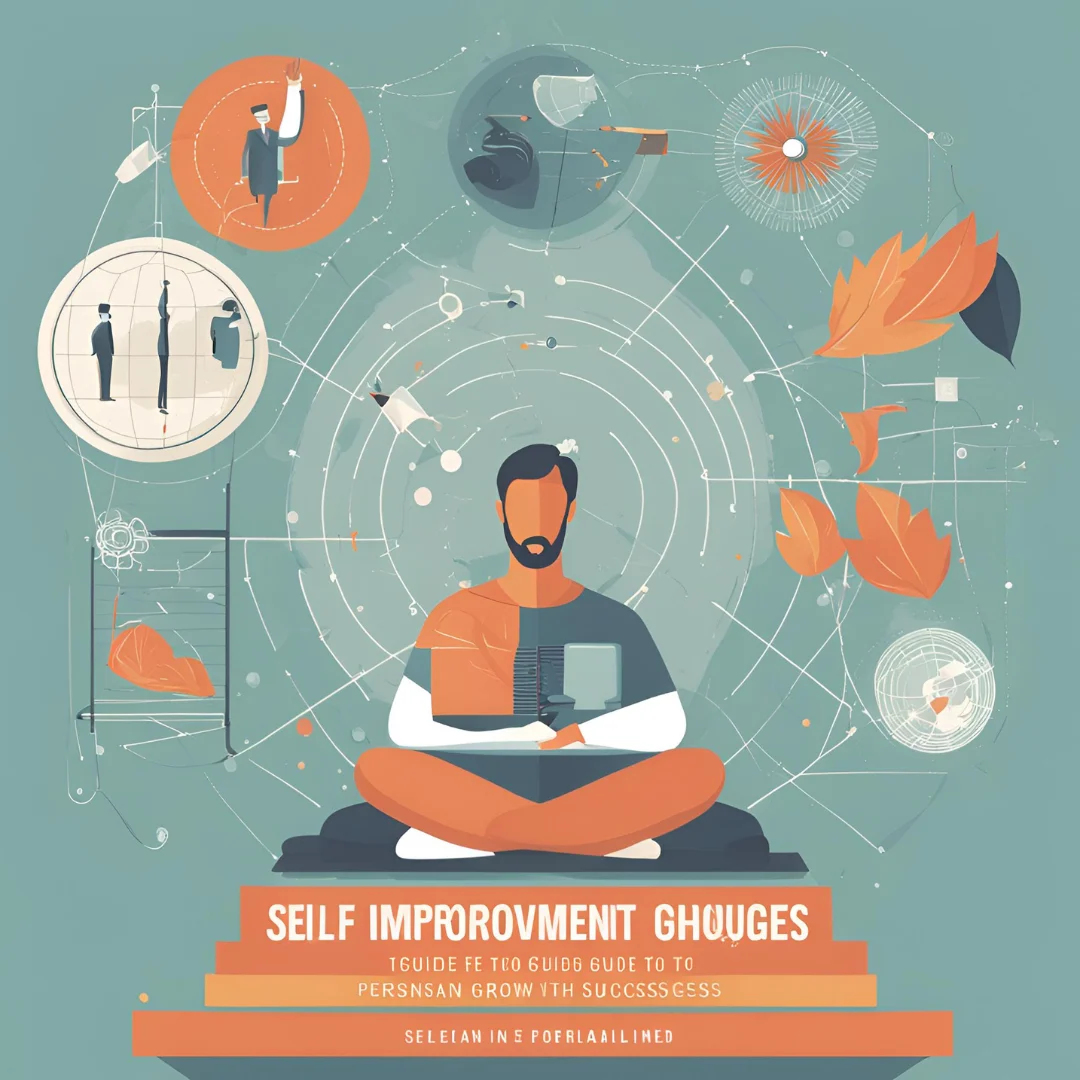Introduction
Self-improvement is a continuous process including deliberate effort to advance and enhance one's knowledge, abilities, and general well-being. Whether your goals are to improve your relationships, work, personal life, or health, self-improvement practices can give you the means to get there. This blog will cover a variety of self-improvement strategies, such as goal-setting, mindfulness training, learning new skills, and creating healthy habits. This guide is meant to motivate and enable you to take control of your own personal development by emphasizing useful advice and doable actions.
1. Setting Clear Goals
Why Goals Matter
Clearly defining and defining goals is the foundation of self-improvement. Objectives offer guidance, inspiration, and a feeling of direction. They support you in tracking your development, concentrating your efforts, and acknowledging your successes.
How to Set Effective Goals
-
Be Specific: Clearly state your goals for yourself. Rather than aiming for a general objective like "be healthier," define it more precisely, like "exercise for 30 minutes three times a week."
-
Make Them Measurable: Make sure your objectives can be measured. If your objective is to read more, for instance, make it your mission to read one book a month.
-
Set Achievable Targets: Although it's necessary to push yourself, make sure your objectives are doable in light of your current situation.
-
Be Relevant: Make sure your aims are in line with your long-term goals and values. This guarantees the significance and intent of your endeavors.
-
Time-Bound: Establish a deadline for finishing your tasks. Setting a deadline makes things feel more urgent and keeps you on course.
2. Practicing Mindfulness and Meditation
The Benefits of Mindfulness
Being mindful entails paying attention to your thoughts, feelings, and environment while letting go of judgment and living in the present now. Reducing stress, enhancing mental clarity, and improving general wellbeing are all possible with mindfulness practice.
Mindfulness Techniques
-
Breath Awareness: As you take a breath and release it, pay attention to it. Take note of how the air feels coming into and going out of your body. This little exercise can help you feel less anxious and more at ease.
-
Body Scan: Focus on various body parts, beginning at your toes and working your way up to your head. Identify and gently release any tension or discomfort.
-
Mindful Eating: Enjoy every bite of food, focusing on its flavor, texture, and scent. By doing this, you can avoid overeating and cultivate a better connection with food.
-
Guided Meditation: Find guided meditations that work for you, whether you want to use them for emotional healing, relaxation, or focus. You can find them via applications or internet resources.
3. Developing Positive Habits
The Power of Habits
Our daily lives are composed of our habits. They influence our habits, activities, and, eventually, the results we get. Positive habit development can result in notable advancements in a number of spheres of life.
Strategies for Building Positive Habits
-
Start Small: Start with small, simple adjustments that you may easily implement into your daily routine. For instance, if you want to start working out, start with a quick daily stroll.
-
Consistency is Key: A habit needs to be practiced regularly in order to solidify. Decide on a certain time every day to work on your new routine.
-
Use Triggers: Connect your new behavior to an established pattern or trigger. For example, the best time to begin writing is just after your cup of coffee in the morning.
-
Reward Yourself: Reward yourself for maintaining your new behavior and acknowledge your accomplishments. Your motivation can be sustained with the aid of this positive reinforcement.
-
Track Your Progress: To measure your success, use an app that tracks habits or keep a notebook. You can keep yourself accountable and track your progress using this.
4. Continuous Learning and Skill Development
The Importance of Lifelong Learning
Continuous learning and skill development are crucial for both professional and personal progress in a world that is changing quickly. Acquiring new abilities can improve your confidence, lead to new possibilities, and advance your professional prospects.
Ways to Continuously Learn and Develop Skills
-
Online Courses and Workshops: Make use of online resources such as Coursera, Udemy, and LinkedIn Learning to broaden your horizons and develop new abilities.
-
Reading and Research: Read books, articles, and research papers related to your area of interest on a regular basis. You may broaden your knowledge and keep informed by doing this.
-
Networking and Mentorship: Make connections with experts in your sector and look for mentorship. Getting knowledge and inspiration from the experiences and thoughts of others can be quite beneficial.
-
Attend Conferences and Seminars: Take part in conferences and events in the business to learn new things and connect with like-minded people.
-
Practice and Application: Use the knowledge you've gained in practical settings. Putting new skills into practice boosts your confidence and reinforces what you've learned.
5. Building Emotional Intelligence
Understanding Emotional Intelligence
The capacity to identify, comprehend, and regulate your own emotions as well as those of others is known as emotional intelligence (EI). You can enhance your relationships, communication abilities, and general well-being by cultivating emotional intelligence.
Components of Emotional Intelligence
-
Self-Awareness: Acknowledge and comprehend your own feelings and how they impact your ideas and actions. The cornerstone of emotional intelligence is self-awareness.
-
Self-Regulation: Control and regulate your feelings in a positive and healthful way. This entails responding wisely rather than rashly and maintaining composure under duress.
-
Motivation: Develop an inner motivation to follow your ideals and objectives. Motivated people are more likely to maintain their composure and fortitude in the face of difficulties.
-
Empathy: Recognize and respect other people's feelings and viewpoints. It takes empathy to create solid, enduring connections.
-
Social Skills: Develop your interpersonal and communication abilities. This covers cooperation, dispute settlement, and attentive listening.
Conclusion
Self-improvement is an ongoing, dynamic process that involves many facets of life, from goal-setting and learning new skills to taking care of one's physical and emotional well-being. You can improve your well-being, reach your objectives, and have a more rewarding life by taking a proactive approach to personal development and implementing the strategies described in this manual. Recall that self-improvement is a journey rather than a goal, so enjoy your progress along the way, learn from your mistakes, and embrace the process.




